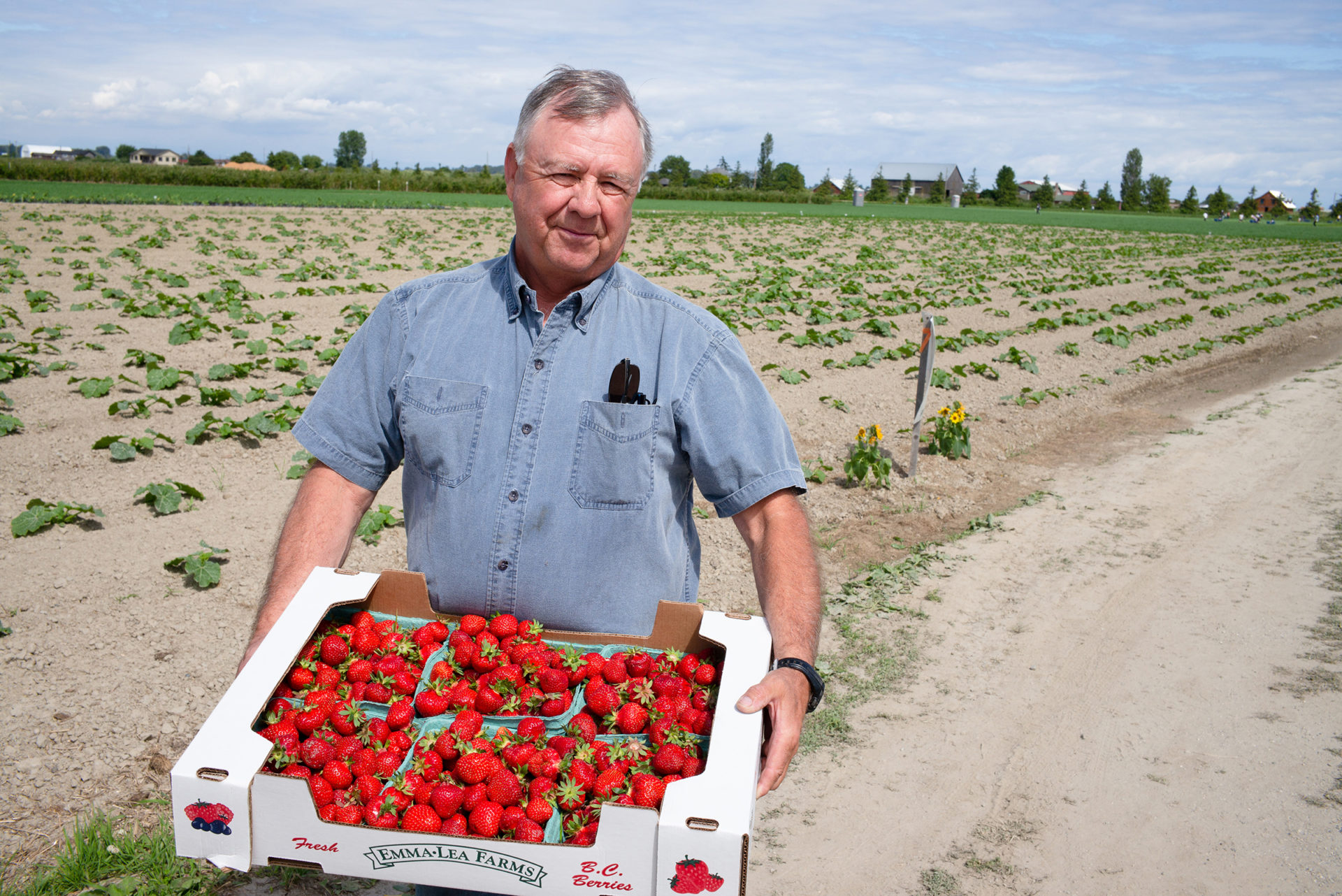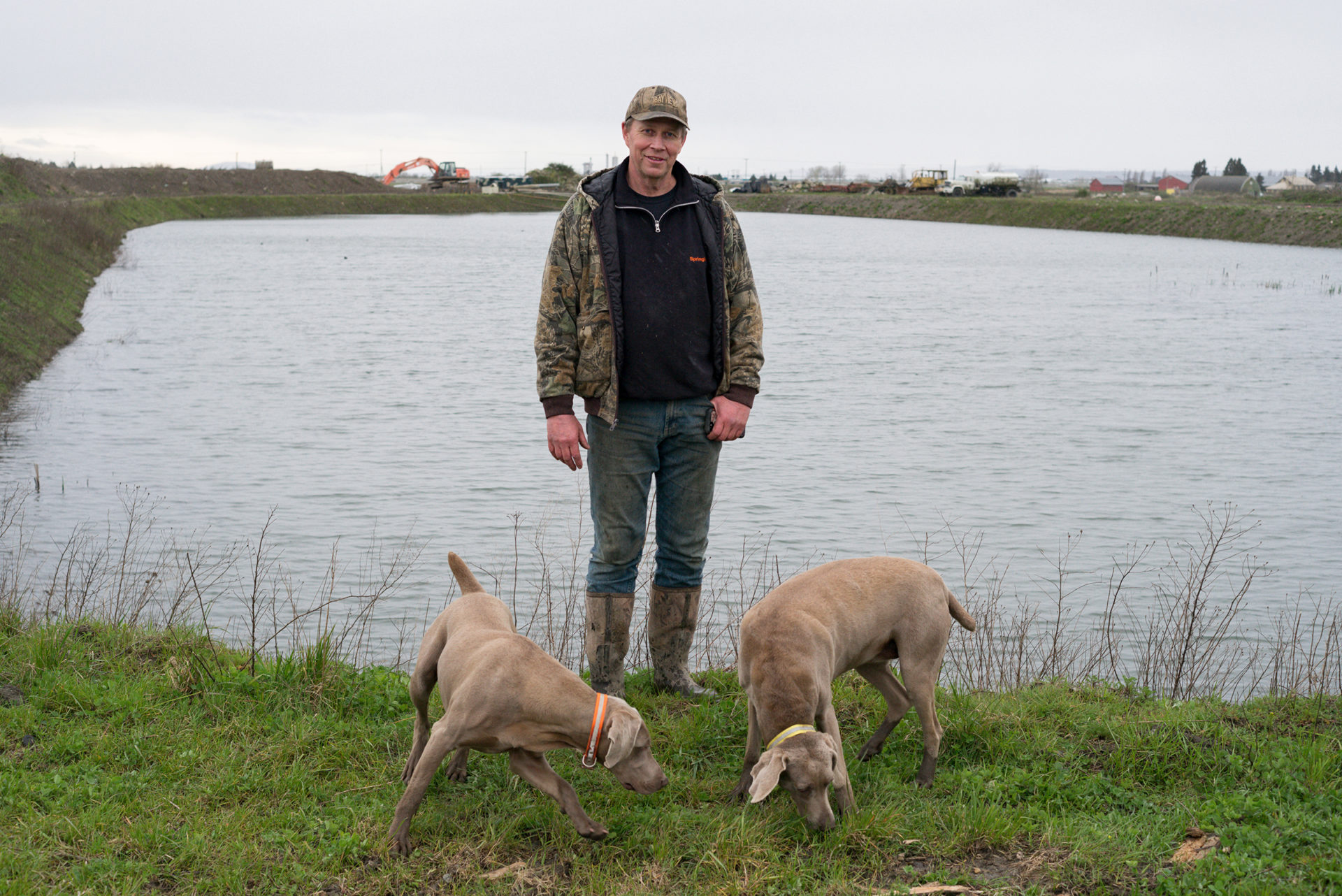DELTA – With memories of the difficult spring of 2017 still fresh in their minds, farmers say strawberries are flourishing while while early predictions show blueberry and raspberry crops should match those of with previous years in the Lower Mainland.
“The size [this year] is as big as I’ve seen for strawberries,” says Kevin Husband of Emma Lea Farms on Westham Island, calling it the best crop he’s seen in 10 years.
Spring rains stopped at an ideal time for Husband’s 30 acres of strawberries to establish the proper root structure to support a large and delicious crop. Healthy fresh-market sales combined with warm sunny weekends for Husband’s u-pick operation were the pay-off for what he considers an ideal crop.
This is especially good news after last year, when yields were 30% down from average. A wet spring oversaturated his plants with water, which led to poor root systems.
“They didn’t form any roots because they didn’t have to,” he says, explaining that smaller roots mean reduced yields. “They just had a few berries and then the season was over.”
Blueberries suffered similarly low yields last year, and while this year is better, they didn’t come out of the winter unscathed.
BC Blueberry Council chair Jack Bates says his 90 acres of blueberries in Ladner are looking good so far. He isn’t the type of person to count his blueberries before they’re picked but he says the crop seems to be back on track after last year.
However, late winter brought hiccups. An unusual cold snap in February killed some young blueberry buds, seemingly at random, in some fields in the Lower Mainland.
“The [affected] buds, when they started opening, were all brown. And then they just kind of opened and fell off,” Bates says.
“On the positive side, weather conditions have been excellent,” he adds, noting that pollination was “great” this year. “Another small rain would not hurt us at all, but most guys are irrigating and getting water on.”
Blueberries in the Lower Mainland suffered from moisture and untimely rainfalls when their buds opened in 2017, preventing adequate pollination and reducing the crop to just 135.6 million pounds.
“Last year was a real downer year; the whole province was down 30-something million pounds. So hopefully we’ll be back up to our traditional production, but it’s too early to tell,” he says.
Bates says he’ll know more once harvest begins, and the impact of a late and untimely June frost on the low-bush blueberry crop in the Maritimes is clear. In some cases, 80% of blueberry crops have been lost. Bates hopes that will mean better prices for BC berries.
Raspberries were later than normal due to the wet spring last year, but like other fruit they’re expected to be on par with previous years, says Henry Mutz of Berry Haven Farm Ltd. in Abbotsford.
“At the moment, it looks like we are only about five days ahead of last year. We were expecting it to be like the strawberries, 10 days ahead,” he says.


 ALC allegations nix Delta farmer’s vision
ALC allegations nix Delta farmer’s vision